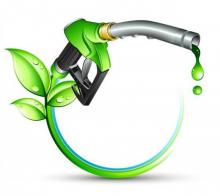 Propane Gas Emissions - With a tiny carbon footprint and high effciency, propane has a lower carbon content than gasoline, diesel, kerosene and ethanol. Combustion is the process of a fuel burned in a chemical reaction that produces energy. The energy produced during combustion is in the form of heat, light or both. By-products are produced that move into the atmosphere after the combustion of a fuel. These by-products are called greenhouse gases and although emissions from propane combustion are greenhouse gases, the level of damaging emissions following the propane combustion are far below that of any readily available carbon based fuel used in vehicles and engines today. Propane is a clean burning and environmentally friendly source of energy.
Propane Gas Emissions - With a tiny carbon footprint and high effciency, propane has a lower carbon content than gasoline, diesel, kerosene and ethanol. Combustion is the process of a fuel burned in a chemical reaction that produces energy. The energy produced during combustion is in the form of heat, light or both. By-products are produced that move into the atmosphere after the combustion of a fuel. These by-products are called greenhouse gases and although emissions from propane combustion are greenhouse gases, the level of damaging emissions following the propane combustion are far below that of any readily available carbon based fuel used in vehicles and engines today. Propane is a clean burning and environmentally friendly source of energy.
In Residential and Commerical appliactions,studies have found that propane models emit:
52% lower greenhouse gas emissions than electric water heaters.
38% fewer greenhouse gases than oil furnaces.
About half the carbon dioxide emissions of a charcoal barbecue.
Propane vehicles emit up to 26% fewer greenhouse gases than gasoline vehicles.
Propane Fuelled school buses produce 17% lower Greenhouse gas emmisions than gasoline-fuelled buses.
Propane Fuelled forklifts emit 19% fewer greenhouse gas emisions that gasoline-fuelled forklifts.
Propane Toxicity, Contamination and Spills - Propane is non-toxic, non-caustic, and will not create an environmental hazard if released as a liquid or vapour into water or soil. If spilled in a large quanitity, the only environmental damage that may occur is freezing any organism or plant life in the immediate area. There are no long term effects following a propane spill, even if quantities are excessively large. The only damage and potential danger exists if the vapour is ignited following a spill, even then there are no long term effects of ignited propane that are damaging to the environment. Propane Liquid and Vapour are envionmentally sound and friendly. While propane's harmless attriutes are eco-friendly, its temperature characteristics can and will cause harm of not handled correctly and carefully.
- Propane is not considered a greenhouse gas
- Propane is not damaging to freshwater or saltwater eco-systems, underwater plant life or marine life
- Propane is not harmful to soil if spilled on the ground. Propane vapour is not considered air pollution
- Propane vapour is not harmful if accidentally inhaled by birds, animals, or people
- Propane will only cause bodily harm is liquid propane comes in contact with skin (boiling point -42ºC/-44ºF)


